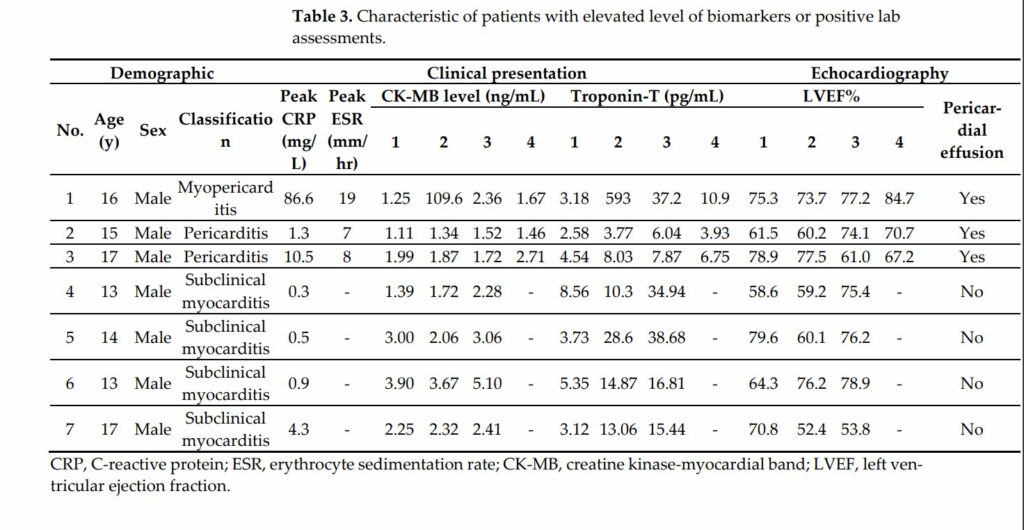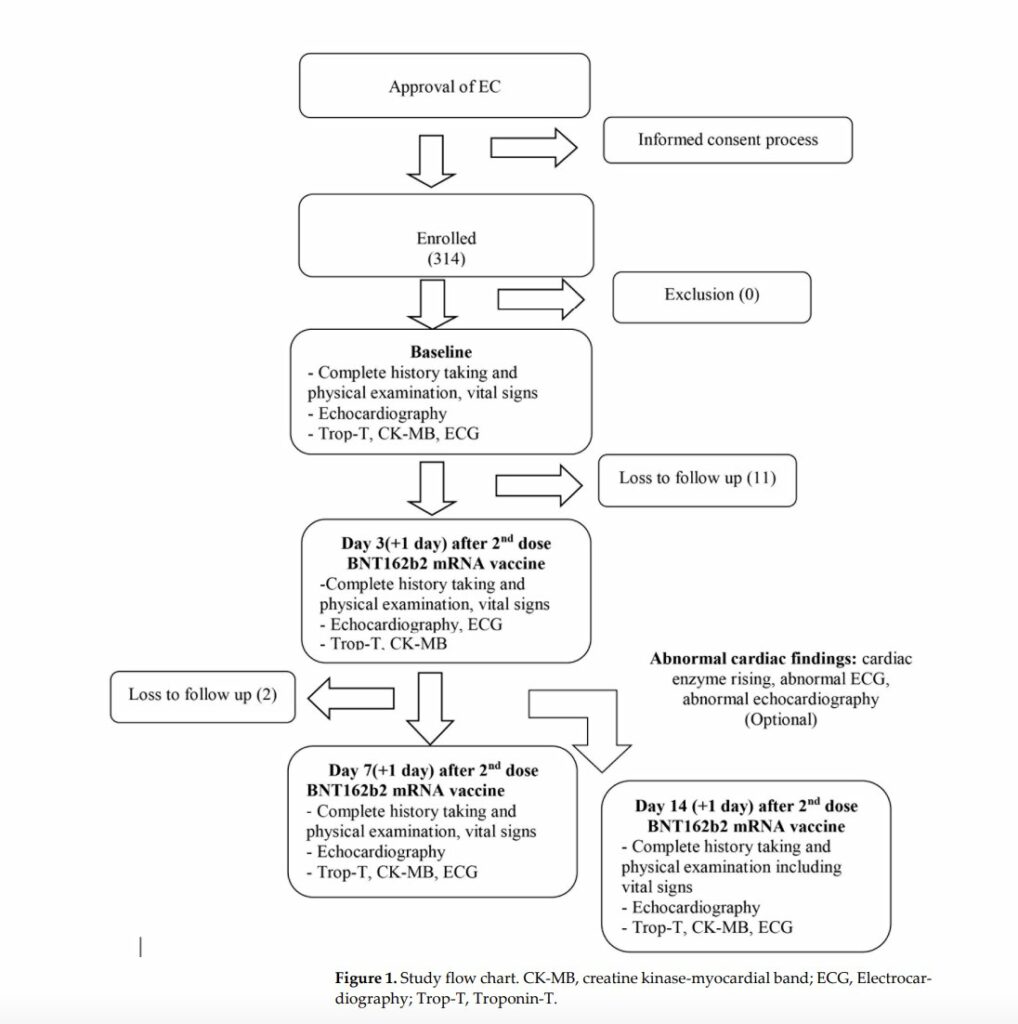The extension of the Emergency Use Authorization of COVID mRNA “vaccines” into the young adult/adolescent population has demonstrated – especially in male patients – an association of cardiac abnormalities namely perimyocarditis. I have been concerned about myocarditis as a risk factor for outpatient anesthesia – especially in oral surgery – since the demographic in question frequently undergoes elective removal of 3rd molars in office.
Up to now, these abnormalities have been observed post-vaccination. However, a very stunning prospective study out of Thailand has shed new light. The following information comes from Tracy Hoeg, MD, PhD off Twitter who has had further discussions with the authors pre-print:
- Design: 301 13-18 year olds following dose 2 Pfizer
- 18% had abnormal EKG post vax
- 3.5% (7/202) males & 0 females developed myoperi/peri or subclinical myocarditis, 2 were hospitalized w/1 being observed in the ICU
- All symptoms resolved within 14 days

The study is impressive because of extensive cardiac work-up pre- and post-vaccination so existing cardiac abnormalities could be determined. Prior to start of study, the researchers found <1% abnormal EKG and specified those as “normal variants”.

Here is Dr Peter McCollough’s review of the study:
There is no published study to evaluate the incidence of cardiac monitoring abnormalities or association with morbidity/mortality undergoing outpatient anesthesia in-office in the same cohort under similar circumstances. In my discussions with colleagues in the community however, there are anecdotal reports of increased frequency of cardiac ectopy (PVCs) and bigeminy in one case in a patient 1 month post-COVID. However I believe this study provides enough evidence for practitioners to consider – at the very least – tracking the vaccination history of their male patients and to possibly consider deferral of elective surgery for at least 2 weeks…possibly more…until we have more data.


Thank you for bringing this to the attention of providers. I have had my concerns about the impacts of circulating spike and implications on the heart. I know that study demonstrated resolution at 14 days but I am curious what impact circulating spike upwards of 60 days (the length of the research study) has on the cardiovascular system and potential medical emergencies in our practices as a result of this stress on the human body.